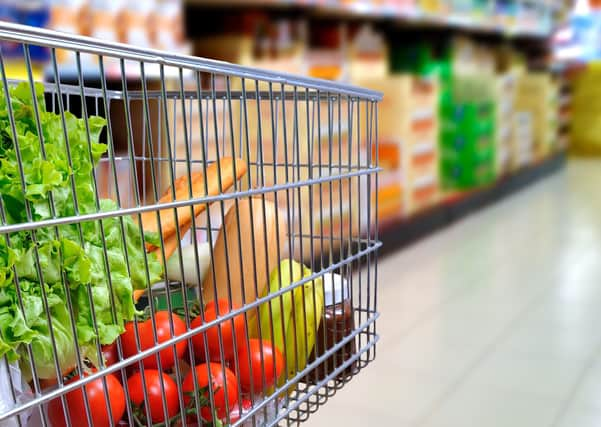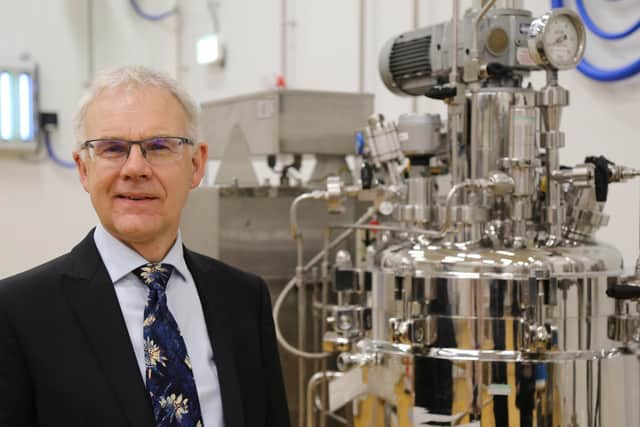Our food industry’s twin threats from Brexit and virus – Martin Howarth


This is worrying for all of us but particularly for the food and drink manufacturing industry. Food and drink contributes £460bn to the national economy and directly employs more than four million people across the four nations.
Even before the pandemic hit, the UK’s ability to feed itself has declined from 65 per cent in 1988 to 50 per cent in 2017.
Advertisement
Hide AdAdvertisement
Hide AdFaced with a country in lockdown, the sector undertook extraordinary measures this year to ensure that we still had food on our table in what was the biggest supply chain challenge since the Second World War.


In March some of the highest ever retail sales were delivered, with factories up and down the country rapidly adapting to social distancing measures to keep key workers safe.
The scale and speed of what was achieved was phenomenal, but to thrive in a post-Covid and post-Brexit world, we must increase our domestic output to boost our resilience and give us a platform to export.
This can only be done if we address the double challenge of much needed advances in technology and innovation and higher-level skills shortages.
Advertisement
Hide AdAdvertisement
Hide AdGreater investment in research and innovation is required if the sector is to be able to deliver products, processes and technologies which will ensure the resilience of the food system.
Under-investment in technology in the past has led to an over-dependence on low-cost, unskilled labour to provide the flexibility required to meet constantly changing production requirements. This potentially leaves the sector vulnerable to shortages in available labour, particularly when faced with external pressures and uncertainty.
At the National Centre of Excellence for Food Engineering, we are already working to shore up our supply of food in the UK by working with rice technology provider Koolmill to increase domestic milling capacity, lessening our reliance on imports.
Globally, we are also collaborating with our wider network of international partners in India and China to create a more sustainable food system in the developing world.
Advertisement
Hide AdAdvertisement
Hide AdTo create a sustainable future in the UK, we need to upskill workers to master new technologies. We need more AI and data specialists, engineering leaders and technology specialists as well as food technologists to drive the sector forward.
With support from the Food and Drink Federation, through our degree apprenticeship programmes here at the NCEFE, we are addressing that skills gap.
We are also helping build a more agile, more sustainable and, ultimately, more profitable food and drink industry, which also promotes healthy living, by applying engineering principles to food processing.
For example, we’re working with JJA Pack, who service and support cup filling and bottle filling machines to the food and drink industry. Through leading edge process knowledge and Industry 4.0 capability the project will re-engineer and convert a food filling machine into a hand sanitiser filling machine.
Advertisement
Hide AdAdvertisement
Hide AdIt will do this by redesigning a food processing machine, implementing a step change in digital control and incorporating remote monitoring and communication systems to enable 24/7 expert engineering support.
We are also helping Baker Perkins develop new technology for the commercial production of meat substitutes. Using innovative technology, the project will enable the production of meat substitutes using fewer additives, reducing processing requirements and create ‘clean label’ products with improved texture, taste and consumer appeal.
These advances aim to strengthen the UK’s food supply chain and address both commercial and consumer concerns arising from Covid-19 about the dependence on food imports in the event of future pandemics or other international supply chain disruptions.
This crisis has had a devastating impact on our society and the economy, but it now presents us with an opportunity to learn from the pandemic and create a brighter future for the food and drink sector.
Advertisement
Hide AdAdvertisement
Hide AdMartin Howarth is director of the National Centre of Excellence for Food Engineering at Sheffield Hallam University.
Support The Yorkshire Post and become a subscriber today. Your subscription will help us to continue to bring quality news to the people of Yorkshire. In return, you’ll see fewer ads on site, get free access to our app and receive exclusive members-only offers. Click here to subscribe.